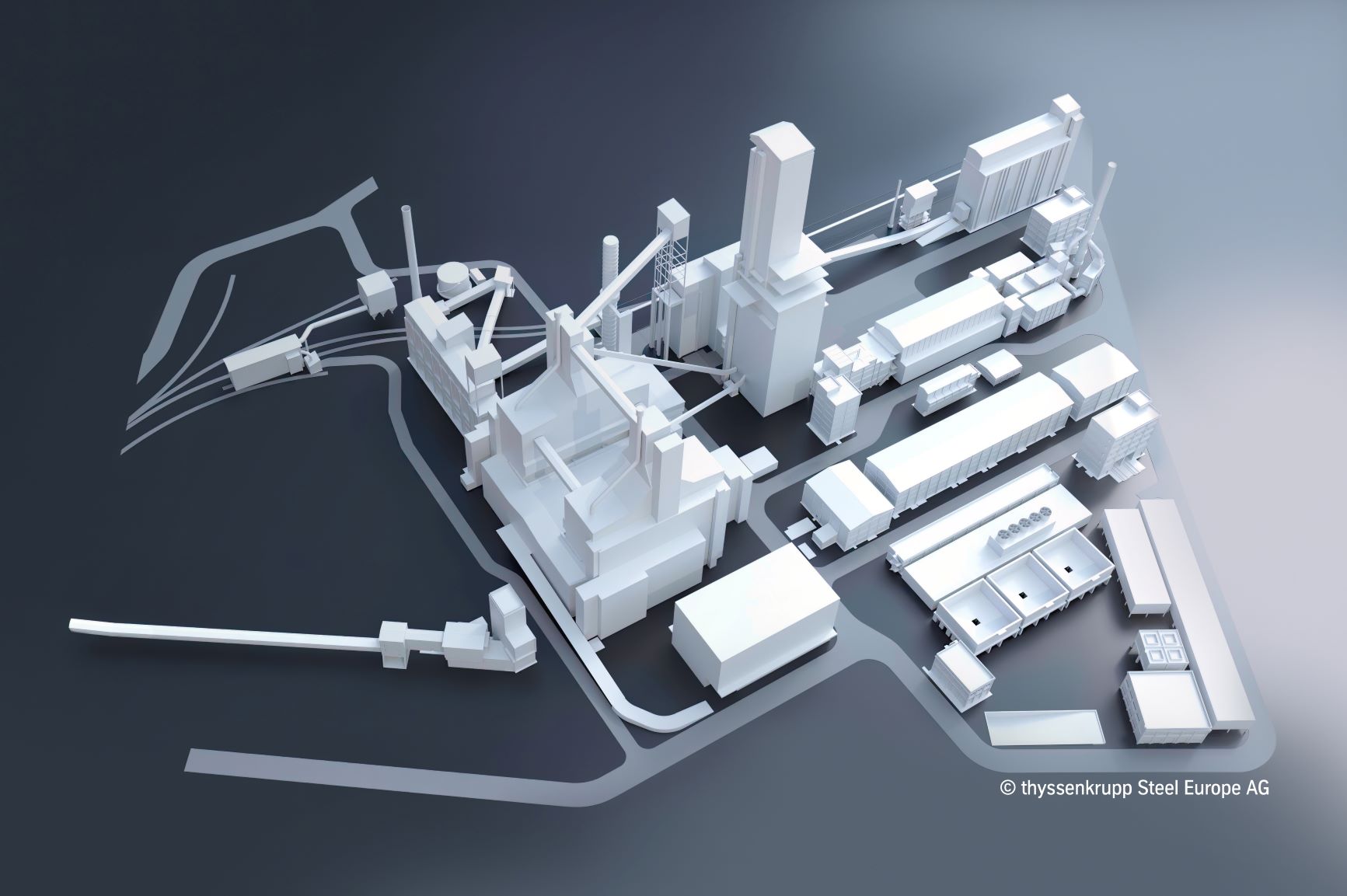
Customers such as Miele, Mubea, Zentis and wheel manufacturer Accuride are improving their own carbon footprint by using Bluemint Steel, thyssenkrupp Steel’s flat steel with reduced CO2 intensity.
Whether in transformers, wind turbines or electromobility, steel is a basic material for the energy transition. The use of Bluemint Steel, the high-quality flat steel with reduced CO2 intensity from thyssenkrupp Steel, will now also significantly improve the carbon footprint of steel products. The advantage: apart from its reduced specific CO2 emissions, the material properties of Bluemint Steel do not differ from those of proven steel grades. At EuroBlech thyssenkrupp Steel presented a selection of its customers’ products made from Bluemint Steel.
Saving CO2 on the traditional blast furnace route
The CO2 reduction is achieved in the production of Bluemint Steel through the reduced use of coking coal in the blast furnace process. For the production of the Bluemint pure variant, this is made possible by replacing part of the ores used with previously reduced sponge iron. This reduces CO2 intensity by 70 percent in balance sheet terms.
For the Bluemint recycled variant, TKSt uses a high-quality scrap recycling product in the blast furnace. As a result, for every ton of Bluemint recycled, a 64 percent savings is reported on the balance sheet. Both savings methods are certified. Bluemint Steel’s real-world CO2 generation savings help metal processing manufacturers, as well as their customers, reduce their carbon footprint and meet their Scope 3 target.
More sustainable products from customers
Zentis, for example, is taking advantage of the possibilities offered by CO2-reduced steel. The screw cap of their NaturRein fruit spreads is made of CO2-reduced rattle tinplate from thyssenkrupp. With the NaturRein fruit spreads, Zentis has completely committed itself to the idea of sustainability – this includes not only the product, but also the packaging. The screw cap manufactured by Pano Verschluss GmbH is PVC-free. CO2-reduced Bluemint steel was used for the production of the rattle stone tinplate. All in all, NaturRein is the first climate-neutral certified Zentis assortment, which significantly advances the food manufacturer in the implementation of its ambitious sustainability strategy.
Accuride’s new truck wheels can even boast a double CO2-saving effect. Thanks to Bluemint Steel’s CO2-reduced steel production, they already score with an improved climate footprint. On top of this, a micro-alloyed steel of the Perform brand with a higher strength is used, which allows a lower plate thickness with the same performance. This material concept makes the truck wheels significantly lighter. This reduces fuel consumption during the use phase compared with a conventional wheel steel. Over the entire life cycle of the wheel, this achieves CO2 savings of more than ten percent – a significant plus for Accuride in terms of sustainability.
Swiss packaging specialist Hoffmann Neopac also relies on Bluemint rasselstein steel for the production of candy tins for Ricola. Hoffmann Neopac uses 100 percent electricity from renewable sources for can production in Switzerland. With this environmentally friendly packaging, herbal candy manufacturer Ricola takes another step towards sustainability.




